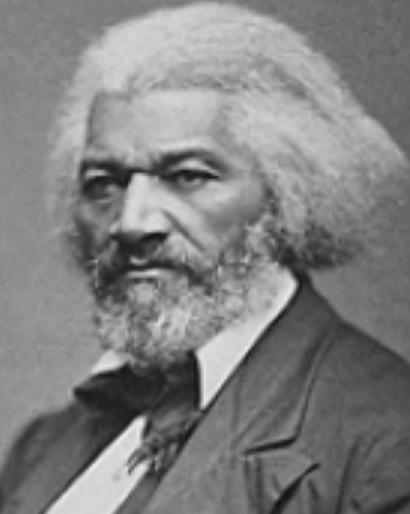This date is traditionally celebrated as the birthday of Frederick Douglass (né Frederick Augustus Washington Bailey). Born as a slave in Maryland in 1818, he was to become a renowned abolitionist, editor and feminist. Escaping from slavery at age 20, he renamed himself Frederick Douglass and became an abolition agent.
Douglass traveled widely, often at personal peril, to lecture against slavery. His first of three autobiographies, The Narrative of the Life of Frederick Douglass: An American Slave, was published in 1845.
In 1847 he moved to Rochester, New York, and began publishing a weekly newspaper, North Star. Douglass was the only man to speak in favor of Elizabeth Cady Stanton‘s controversial plank of woman suffrage at the first women’s rights convention in Seneca Falls, New York, in 1848. As a signer of the Declaration of Sentiments, Douglass also promoted woman suffrage in North Star. Douglass and Stanton remained lifelong friends.
In 1870 Douglass launched The New National Era, published from 1870-74, in Washington, D.C. He was nominated for vice president by the Equal Rights Party to run with Victoria Woodhull as presidential candidate in 1872. He became U.S. marshal of the District of Columbia in 1877 and was later appointed minister resident and consul-general to Haiti. His District of Columbia home is a national historic site. (D. 1895)
* Editor’s note: Douglass was fairly religious, so the quote below may be interpreted, as it has by numerous religious writers, as prayer is very ineffective without action behind it. A skeptic might paraphrase it as nothing fails like prayer.


